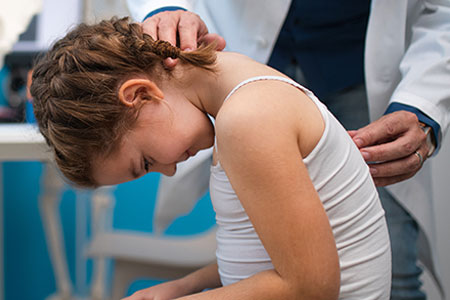


Dr. Archana Khan is a highly qualified and experienced pediatrician with a focus on Pediatric Rheumatology. She obtained her MBBS from SETH G.S Medical College, Mumbai University, India, in 1997, and later completed her DCH and DNB (Pediatrics) from B.Y.L. Nair Hospital and Topiwala Medical College, Mumbai, in 1999.
Dr. Khan has continually sought to enhance her skills and knowledge through various certifications and courses. She completed a one-year online course in Pediatric Rheumatology offered by Paediatric Rheumatology European Society (PReS) and European League Against Rheumatism (EULAR) in February 2020. Additionally, she received certification in the 'Art and Science of Paper Writing' by Indian Paediatrics in 2021 and attended a Scientific Writing and Publication Workshop conducted by the Indian Journal of Rheumatology and Pediatric Rheumatology Society in 2020.



A
S
A
J
M
B
N
Pediatric rheumatology is a subspecialty of medicine that deals with the diagnosis and treatment of rheumatic diseases and conditions in children, such as juvenile idiopathic arthritis, lupus, and lupus nephritis, dermatomyositis, vasculitis, prolonged fever, other autoimmune diseases and autoinflammatory diseases.
The symptoms of rheumatic diseases in children can vary depending on the specific condition, but may include joint pain or swelling, stiffness, fever, rash, fatigue, and decreased appetite or weight loss.
Treatment for rheumatic diseases in children may include medication, physical therapy, occupational therapy, and lifestyle modifications. The specific treatment plan will depend on the child's individual needs and the type of rheumatic disease they have.
While there is no cure for most rheumatic diseases, early and effective treatment can help manage symptoms, prevent joint damage, and improve quality of life for children with these conditions.
Lifestyle modifications that can help children with rheumatic diseases include getting regular exercise, maintaining a healthy diet, getting enough rest, avoiding tobacco and alcohol, and managing stress.
Some examples of rare rheumatic diseases in children include juvenile dermatomyositis, eosinophilic fasciitis, mixed connective tissue disease, and Kawasaki disease.
Diagnosing and treating rare rheumatic diseases in children can be challenging due to their rarity and the limited amount of research and clinical experience available. Pediatric rheumatologists may use a combination of medical history, physical examination, laboratory tests, and imaging studies to diagnose these conditions. Treatment may involve medication, physical therapy, and other interventions, and may require referral to specialized centers or clinical trials.
A pediatric rheumatologist is a medical doctor who has completed additional training in pediatrics and rheumatology, and who specializes in diagnosing and treating rheumatic diseases and conditions in children.
Pediatric rheumatologists use a combination of medical history, physical examination, laboratory tests, and imaging studies to diagnose rheumatic diseases in children.
The medications used to treat rheumatic diseases in children may include nonsteroidal anti-inflammatory drugs (NSAIDs), disease-modifying anti-rheumatic drugs (DMARDs), biologic agents, and corticosteroids.
The side effects of medications used to treat rheumatic diseases in children can vary depending on the specific medication, but may include stomach upset, headache, nausea, vomiting, diarrhea, and increased risk of infections.
The Arthritis Foundation, the American College of Rheumatology, and the Childhood Arthritis and Rheumatology Research Alliance (CARRA) are all good resources for information and support for children with rheumatic diseases and their families.
Resources for families of children with rare rheumatic diseases may include patient advocacy organizations, clinical trials, and support groups. The Genetic and Rare Diseases Information Center (GARD) and the National Organization for Rare Disorders (NORD) are also good resources for information and support for rare diseases.